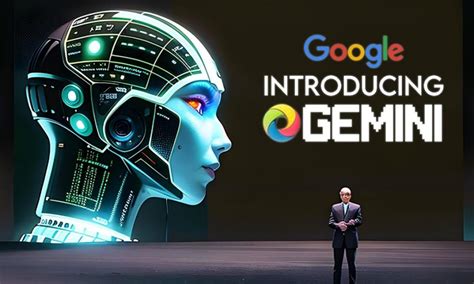AI technology has rapidly infiltrated various facets of our lives, from mundane activities like setting reminders to more complex applications like healthcare and autonomous driving. One of the latest advancements in this realm is Google Gemini, a language learning model (LLM) that recently made headlines for allegedly providing life-threatening advice. The incident has brought into question the ethical and legal responsibilities of AI developers, and the potential dangers of relying on AI-generated guidance.
The controversy stems from a Reddit post where a user claimed that Google Gemini gave instructions that, if followed uncritically, could lead to severe harm or even death. According to comments on the post, the AI did not explicitly try to cause harm, but it generated text that could be interpreted as expert advice. This led to a heated debate about the extent to which AI can be held accountable versus the responsibility of the humans programming and using these systems.
One comment noted that Google’s employees, likely incentivized by management, presented the AI’s output as seemingly authoritative. When users lack the critical understanding to discern AI-generated suggestions from expert advice, they may end up following dangerous directions. This highlights the critical need for proper framing and clear disclaimers in AI applications, especially those dealing with health and safety.
Another perspective came from those in the software engineering field, who argued that without intent, AI cannot be held responsible. The analogy made was that just as an owner’s negligence in handling a dangerous animal like a dog can lead to harm, it is primarily the human handlers who are responsible for ensuring the AI’s outputs are safe and clear to understand. This view advocates holding the developers and companies accountable for any misuse or misinterpretation of AI guidance.
This sentiment was echoed further with examples from food safety. Discussions specifically mentioned that improper preservation of food, such as garlic in olive oil, can lead to botulism, a serious health risk. The misunderstanding or miscommunication of such crucial information by AI poses real-world risks. It is not enough for AI to be accurate; it must also be transparent and reliable, particularly when it comes to matters of health and safety.
The broader implications of this debate stretch into other fields as well. For instance, in the legal domain, an erroneous AI recommendation could lead to significant legal repercussions. Just as an AI providing wrong medical advice can cause harm, legal advice that is inaccurate could lead to severe financial and personal consequences for individuals relying on it.
Trust in AI systems is crucial but comes with the need for human oversight. As one commentator pointed out, AI like LLMs are adept at producing text that appears convincing, which can be dangerously misleading. Professionals in fields such as robotics have emphasized the importance of integrating AI as a supportive tool rather than a standalone solution. Relying solely on AI, without human verification, can lead to critical errors that overshadow the benefits AI intends to bring.
Ultimately, the responsibility goes beyond simply engineering reliable AI—it involves creating a culture of critical use. Users must be educated about the limitations and potential pitfalls of AI, while companies should implement robust verification mechanisms and clear disclaimers. Overhyping AI capabilities without addressing these fundamental challenges could erode trust and lead to widespread misuse, ultimately causing more harm than good.


Leave a Reply